Philanthropy and environmental justice: Hilary Pennington with Laura García

Transcript
[Laura García, a Mexican woman wearing a white shirt and glasses, sits for a video conversation with Hilary Pennington, a white woman with blonde hair, wearing a green shirt and sitting in an orange chair.]
LAURA GARCÍA: For us, who have been working in philanthropy and recognizing this problem for a long time, we have been trying to modify things, uh, so that we create the most desired and effective impact because with climate change, we know that, um, time is running out, that it is very important for us to create the best impact possible.
[on-screen graphic: Social Justice Leaders on What Matters, Hilary Pennington with Laura García]
[on-screen text: Hilary Pennington, Executive Vice President of Programs, Ford Foundation]
HILARY PENNINGTON: Laura is a Mexican feminist who has advocated for human rights, social justice, and civil society throughout her career. Before joining Global Greengrants, Laura served for seven years as executive director of Fondo Semillas, a Mexican nonprofit organization that finances grassroots organizations to achieve gender equality. Laura has vast experience in grassroots philanthropy, human rights, and movements for social justice.
Tell me about Global Greengrants, your mission, and the kinds of organizations that you fund.
[on-screen text: Laura García, President & CEO, Global Greengrants Fund]
LAURA: Sure. Thank you, Hilary. And thank you so much for the space to, to, to speak here with you today. Global Greengrants Fund is a global organization that provides resources and funding to global grassroots movements working for the—for environmental justice around the globe. Uh, we, uh, support, for example, farmers and fisherfolk, beekeepers, uh, Indigenous communities who are fighting to defend their, um, their culture and their ways of life. We are, um, one of the few funders in the world with an infrastructure capable of, um, of financing grassroots movements at the intersection of social justice and environmental justice. Almost half of our grantees are receiving a grant for the first time through us.
HILARY: That’s fantastic. And, you know, I’m so looking forward to the chance to talk about, um, your own perspective and the way your, your perspective as a feminist influences how you work and how you see the intersections between gender equality and environmental justice and more. And I’d love if you could say a little bit more, really more about that.
LAURA: One of the most valuable things that I have observed from feminism and from my career as a feminist is, um, that it’s a deeper understanding of the systems that promote these injustices. And one key aspect of it is how all of that has been made by humans and by societies. We have created those systems. And I think that for me that was an incredible eye-opener, because I think that we were brought up—or we are brought up—to take reality as granted: This is the system. It’s—there’s inequality. It’s almost like a human flaw, and it’s perceived as natural, you know?
Through my work, uh, my previous work with Fondos Semillas in funding grassroots movements working for gender inequality, I started to understand not only the theoretical aspects but the way—the feminist agendas and the way that movement in the ground happens, uh, through activism, that it might be formal and institutionalized but also sometimes in informal ways with, with groups that are just, um, organizing in a basement. And that became key to my passionate advocacy for grassroots movements.
HILARY: And what I love about what you’re saying is that it is, um, because human beings created these systems, we can change them. It is so true what you said, that in order to be able to do that, you have to see. You have to change the lens that you use.
Increasingly, in Ford’s work, and I know in some of the work that we are doing with you, uh, there’s another frontier that I think has been systematically unseen, um, which is the connection with disability. You have, have really begun such deep and important work in that space. What are you learning and how is that work transforming the general ways that you all think about your grantmaking?
LAURA: The lens is incredibly important because we learn to, to understand things from a certain perspective. When we were invited by Ford Foundation to start identifying the intersection with disability rights and the groups that have been working on these things, our systems were not formed yet with that lens to be able to identify quickly groups working with disability rights at the intersection of environment. And we started doing that work. Our advisory network that, uh, that Greengrants has—which is a network of, uh, environmental leaders around the world that are well recognized and grounded in grassroots movements, uh, across the globe—they help us identify the grantees and they give them accompaniment, which is our main or essential way of doing things in Greengrants. And they were very interested in starting to learn and starting to, um, identify and make the, make the connections between our work in environmental justice and these groups.
And we have, uh, funded a group in Honduras of men who have been, historically, diving for lobsters, uh, and hired by transnational companies to extract lobsters, but because of overfishing and climate change, they have been needing to dive deeper and deeper without the proper equipment. And you have full towns with men in wheelchairs who have been organizing to demand the Honduran government for the rights to, um, to make sure that they have their labor rights exercised and the proper equipment to continue doing what they have been doing for millennia. They become defenders of the oceans and defenders of a good and healthy equilibrium of extracting resources that we need to survive. Uh, and they are putting in front page the enormous inequalities that exist with these transnational companies who have no limits and who are extracting the oceans to the point where these fisherfolk, um, are bearing the costs of that. And that, that is the intersection.
HILARY: That is such a powerful example. And, and really just to call, to call the question of what it means to have growth at any cost. You used a really beautiful and powerful word, Laura, about, um, which is the word “accompany.” And you talked about accompanying your grantees accompanying activists in the work that they do. You and I both are in lots of conversations about the need to disrupt philanthropy. What needs to change in philanthropy?
LAURA: Because movements have been largely underfunded historically, they face a very tense situation between doing what they know is the best solution and receiving the money that they need but with the cost of modifying their strategies. For us, who have been working in philanthropy and recognizing this problem for a long time, we have been trying to modify things so that we create the most desired and effective impact because with climate change, we know that, um, time is running out, that it is very important for us to create the best impact possible. And I think that’s what attracted many philanthropists to start understanding what would it mean for us to fund grassroots movements and meet them where they are.
HILARY: Where they are—
LAURA: Instead of having the grassroots movements, uh, replicate what we think is right. And I think that this shift, um, starts with something incredibly important, which is called trust. And it requires a system where we accompany each other and where we put the resources and the power that we have, but to serve the collectivity. So it is not about giving up power just—and becoming invisible. We need the Global North to redistribute resources. And, for us, that requires a lot of accompaniment, which means you walk alongside the grantee to understand what you can bring to the table in a conversation where we both learn from each other. And we recognize also that money provided by philanthropy is one small percentage of all the resources that grantees and grassroots organizations provide to their own movements.
HILARY: Like, what does it mean to have power with, you know, rather than power over? What do you hope are the outcomes of, of all the collective rallying around climate?
LAURA: That we can create big steps towards what Naomi Klein has said as the big umbrella, which is climate justice uniting all of the different social movements that are very powerful, that are creating change. I think that that happens with two things—a change in the narratives behind climate solutions and, uh, more integration of intersectional perspectives and agendas in the climate agenda itself.
We need to continue fighting for the—for our ability to see that climate change is real, is happening, but that also solutions and adaptation and mitigation, uh, approaches and strategies are very much happening in many communities around the world who are fighting for this and who have been fighting for this. We cannot wait until humans create this big and false solution while systems of oppressions continue. We need to face the reality that we need to deconstruct these systems. And whilst we are sometimes feeling unable to, uh, to deconstruct, for example, a system as powerful as our economic system, there are other people, um, and communities who are already protecting their ecosystems, who are already, uh, capturing carbon in the soil.
HILARY: You work with a lot of leaders on the frontlines, many of whom are Indigenous peoples, and I’m curious what, what they are telling you about, about their experience, um, during the COVID crisis.
LAURA: We fund around, um, a thousand grantee partners per year with small grants, and these small grants provide them with a lot of flexibility. For example, um, at some point, moving away from their strategies of environmental justice into just basically providing food for fisherfolks. After a year of using their grants to, to organize food systems in the community, these groups became a reference point and reached out to new people and new communities and started to build stronger social fabrics needed to therefore protect the earth. So, through disasters, we also create the opportunity to build stronger communities. I know that from, from earthquakes in Mexico. And I’m not saying that, you know, we’re better off, but I know that civil society comes out stronger. But we need philanthropy to be there.
HILARY: Yes, and to say, “You know better than we know. Use the money in the way that you need it now.” But I think you are really describing, you know, the power of trust, right? And, and, and if you have trust as a foundation, then you can organize so much more effectively from that base.
I so admire and appreciate your leadership and your vision. I think that what you are doing through Global Greengrants, and what larger foundations like ours are able to learn, um, as we partner with you, is so essential. So, thank you so much for making the time for this. It really, really was just such a privilege and a pleasure to get to spend some time talking. Thank you.
[on-screen text: What’s your take? Join the conversation]
[on-screen graphic: Ford Foundation logo]
Accessibility Statement
- All videos produced by the Ford Foundation since 2020 include captions and downloadable transcripts. For videos where visuals require additional understanding, we offer audio-described versions.
- We are continuing to make videos produced prior to 2020 accessible.
- Videos from third-party sources (those not produced by the Ford Foundation) may not have captions, accessible transcripts, or audio descriptions.
- To improve accessibility beyond our site, we’ve created a free video accessibility WordPress plug-in.
This episode of #OnWhatMatters is a timely and important conversation with our executive vice president, Hilary Pennington, and the president and CEO of GlobalGreen Grants Fund, Laura García, on environmental justice. They discussed how important it is to disrupt traditional philanthropic models by listening to grassroots movement leaders and centering grantee perspectives.
“We have been trying to create the most desired and effective impact, because with climate change, we know that time is running out,” said García.
Global Greengrants Fund is a charitable foundation that funds over 1,000 organizations working on environmental causes around the globe.
Other videos in this series
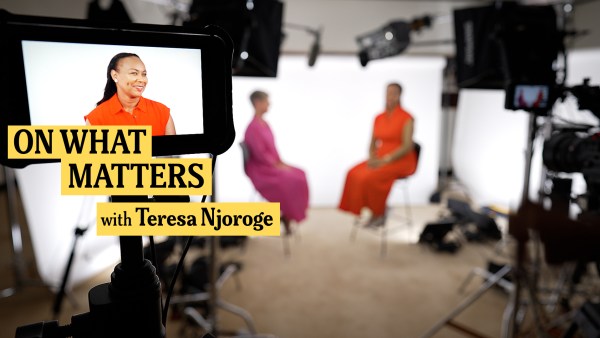
The Power of Restorative Justice With Teresa Njoroge and Hilary Pennington
Teresa Njoroge, founder and CEO of Clean Start Solutions and criminal justice reform advocate, and Hilary Pennington, executive vice president of programs at the Ford Foundation, discuss helping people who have been through Kenya’s justice system find new dignity and hope through employment.
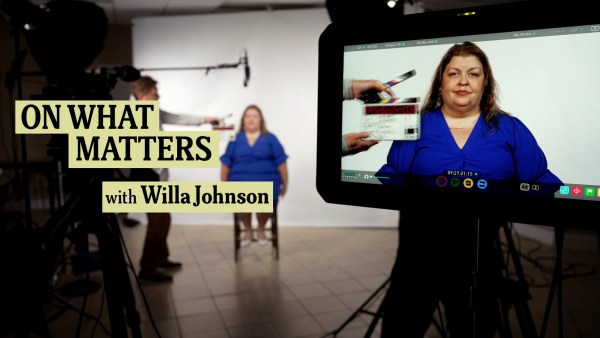
The Power of Appalachian Art With Willa Johnson and Sarita Gupta
Willa Johnson, director of the film department at Appalshop, and Sarita Gupta, vice president of U.S. programs at the Ford Foundation, discuss heartland creativity and amplifying rural narratives.
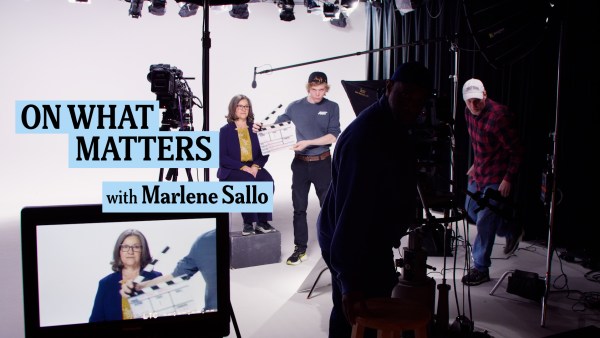
Centering Disability Rights and Justice With Marlene Sallo and Hilary Pennington
Marlene Sallo of the National Disability Rights Network and Hilary Pennington of the Ford Foundation talk about the systems that support and fail the disability community and how disability justice is essential to building a multiracial democracy.
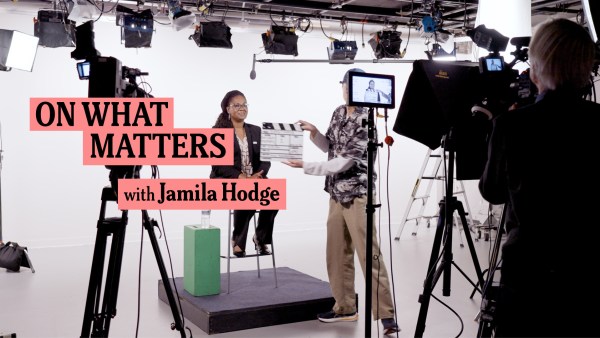
Advancing Community-Based Violence Intervention With Jamila Hodge and Sarita Gupta
Jamila Hodge of Equal Justice USA and Sarita Gupta of the Ford Foundation talk about community-based violence intervention and the importance of promoting a trauma-informed public health response to violence. Jamila explains how, if we want to address institutional racism, we must address the root causes of violence and center those most impacted.
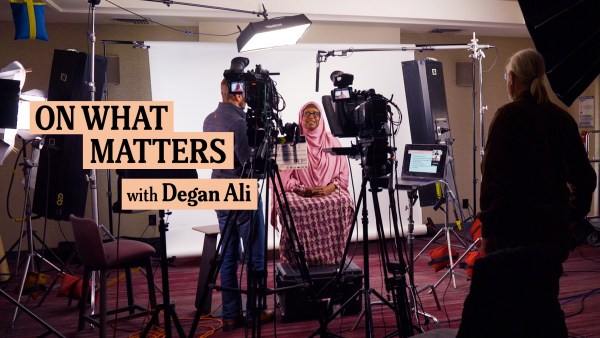
Decolonizing Humanitarian Aid With Degan Ali and Martín Abregú
Degan Ali and Martín Abregú talk about shifting to locally led development and decolonizing aid. Degan shares why we must rethink current structures of providing aid and have local civic society organizations play a stronger and more strategic role in global policy debates.
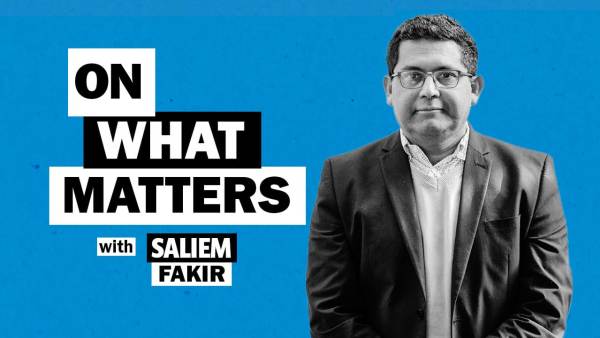
Working Towards a Truly Just Energy Transition with Hilary Pennington and Saliem Fakir
Saliem Fakir, the founder and executive director of the African Climate Foundation, the first grantmaking foundation in Africa focused on furthering solutions for sustainable climate development, joins Hilary Pennington to discuss the urgent need to address climate change and South Africa’s promising Just Energy Transition Partnership.
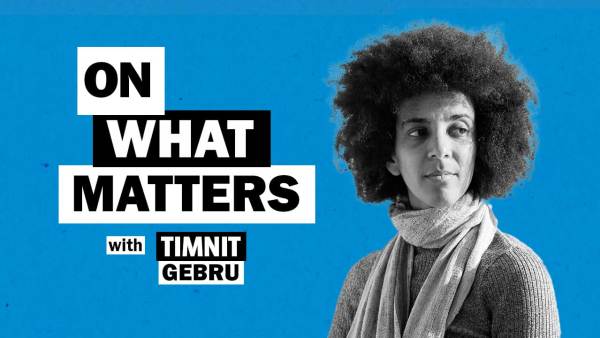
Making AI systems more just with Hilary Pennington and Dr. Timnit Gebru
Dr. Timnit Gebru, founder and executive director of the Distributed Artificial Intelligence Research Institute (DAIR), joins Hilary Pennington to discuss how an inclusive and collaborative approach to creating AI systems can address the uneven benefits and harmful impacts of technology on society.
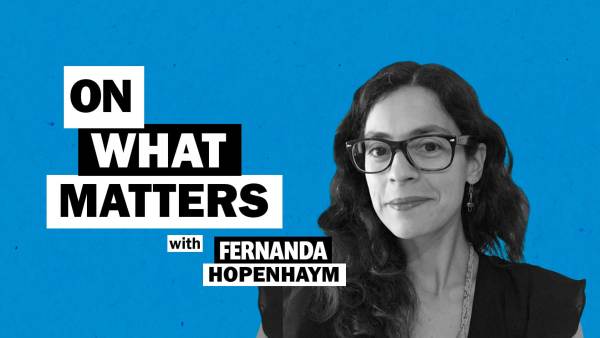
Holding corporations accountable with Hilary Pennington and Fernanda Hopenhaym
Fernanda Hopenhaym is the co-executive director of the Project on Organizing, Development, Education, and Research (PODER), a nonprofit in Latin America that pushes for corporate accountability for human rights and environmental abuses. Fernanda and Hilary discuss how to keep businesses ethical and transparent by using feminist and human rights organizing strategies.
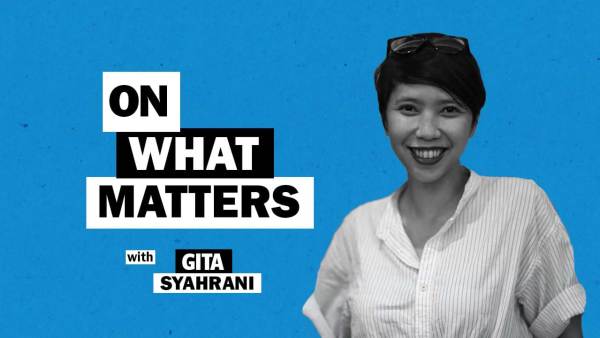
Saving forests while eradicating poverty with Hilary Pennington and Gita Syahrani
Hilary Pennington talks with Gita Syahrani about how engaging Indigenous and local communities in sustainability efforts can lead to greater economic mobility for them. Her work shows how civic engagement at the district level can have global impact.
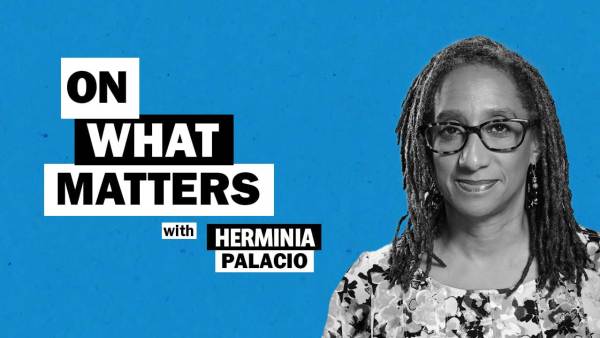
The future of reproductive justice with Hilary Pennington and Dr. Herminia Palacio
Hilary Pennington and Dr. Herminia Palacio discuss this moment in the reproductive justice movement, how different communities are impacted, and what the United States can learn from countries that have won gender and reproductive health victories.
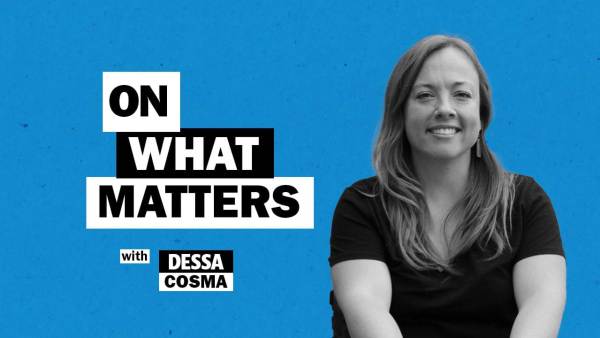
Reimagining how we think about disability with Hilary Pennington and Dessa Cosma
Hilary Pennington talks to Dessa Cosma about disability justice and inclusion. They discuss the importance of using intersectional approaches to activism and how to restructure the economy to be more just for disabled people.
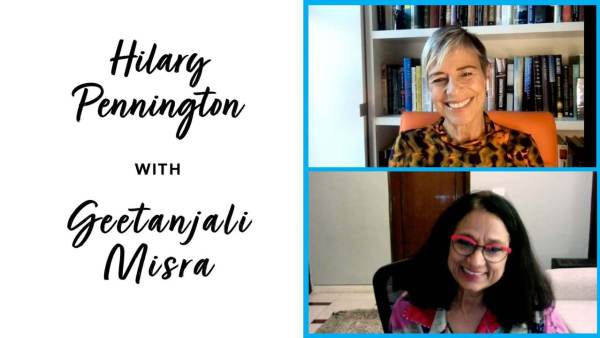
The future of feminism: Hilary Pennington with Geetanjali Misra
Geetanjali Misra has bore witness to the evolution of feminism both on the ground in the U.S. and India and in her work as an activist. Seeing patterns change and movements shift, she speaks about the importance of intersectionality in building a more inclusive feminist future.
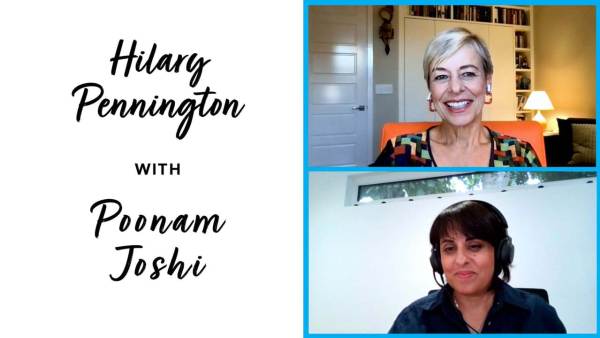
COVID’s impact on civic space: Hilary Pennington with Poonam Joshi
Civic space is essential for democracy. It allows people to participate in society and communicate freely and without discrimination. But, according to Poonam Joshi, director of Funders’ Initiative for Civil Society director, there are threats that need to be addressed before we solidify the civil society we want in the future.
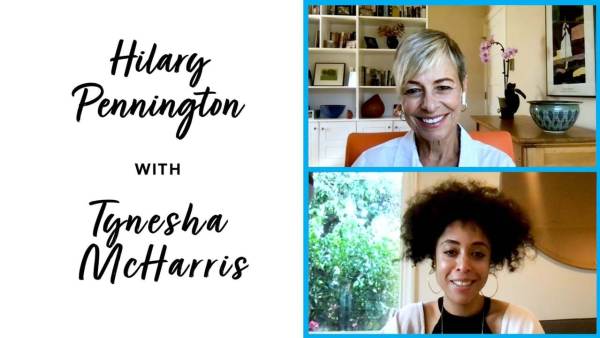
Funding Black feminism: Hilary Pennington with Tynesha McHarris
Black feminist movements are advancing social justice globally. Tynesha Harris, one of the founders of the Black Feminist Fund, aims to channel more support to movement leaders and create a model of true solidarity. Racial, gender, and class injustice need an intersectional approach that acknowledges the inherent value of Black women.
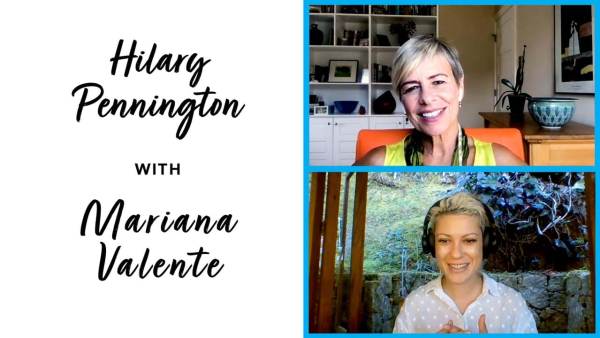
Technology and gender: Hilary Pennington with Mariana Valente
The internet is a force for good, but it must be guided by fundamental human and privacy rights and offer social protection, said InternetLab director Mariana Valente. In this way, technology can advance equality and, with the right policies in place, be used as a tool for advocates to organize.
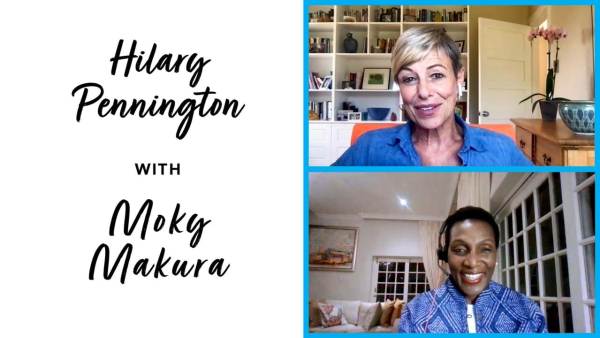
The power of storytelling: Hilary Pennington with Moky Makura
For too long, Africa has been defined in the media by stereotypes and oversimplified narratives. With Ford’s support, Africa No Filter is disrupting these narratives by empowering storytellers helping to create a nuanced, balanced view of the continent and an equitable, inclusive way of how to partner with it.
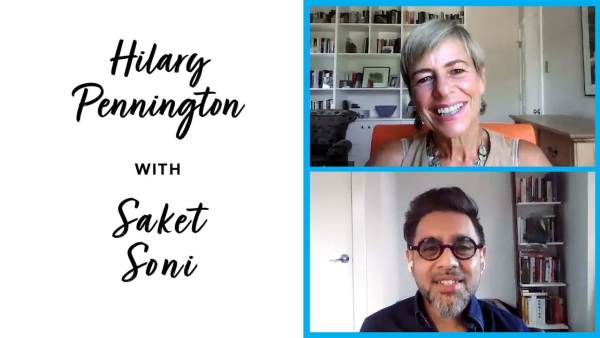
What essential workers need right now: Hilary Pennington with Saket Soni
Disasters present the opportunity to bring us together and give us the chance to reevaluate our priorities and ask what’s really important. Labor organizer Saket Soni sees COVID-19 as a prologue to other threats, like climate change. He says disaster responses need to focus on strengthening essential workers.
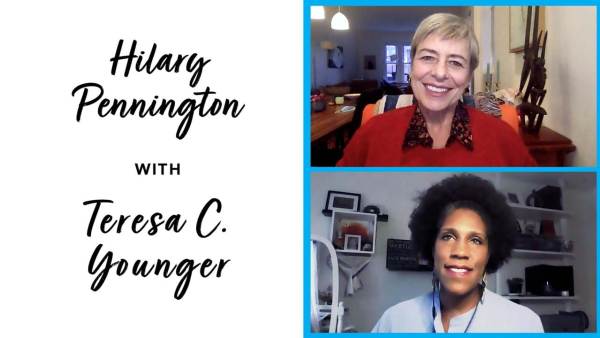
Philanthropy and Black women: Hilary Pennington with Teresa C. Younger
Social justice organizations led by women of color often receive less funding. Teresa C. Younger, CEO of the Ms. Foundation, explains why philanthropy needs to center women of color to address systemic racism and uplift women and girls of color for a more just future.
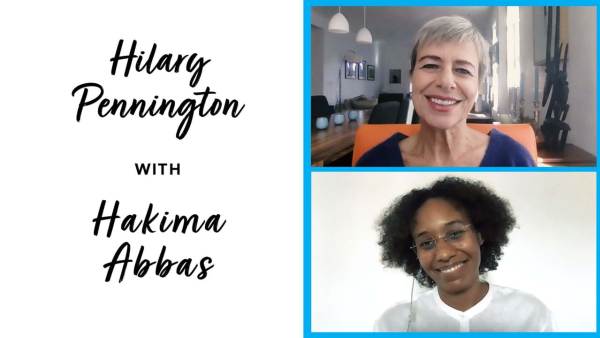
How young feminists are organizing: Hilary Pennington with Hakima Abbas
COVID-19 has impacted the way we work, but it also exacerbated gender inequality in the workplace. Hakima Abbas, of the Association for Women’s Rights in Development, believes we can prevent any further damage by including feminist leaders across the board in devising solutions.
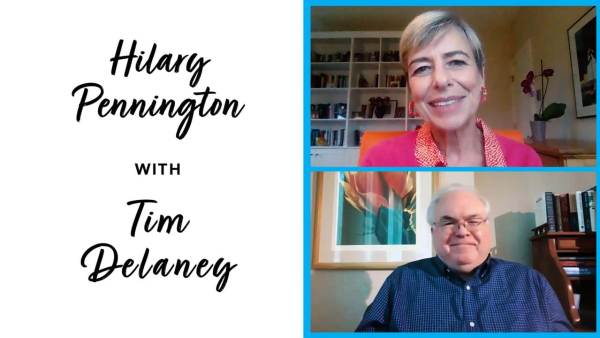
How nonprofits make an impact: Hilary Pennington with Tim Delaney
Over one million nonprofits exist in the United States, but Tim Delaney, the CEO of the National Council of Nonprofits, has an idea to make them even more impactful. To him, bringing social justice groups together can transform philanthropy for the benefit of all.
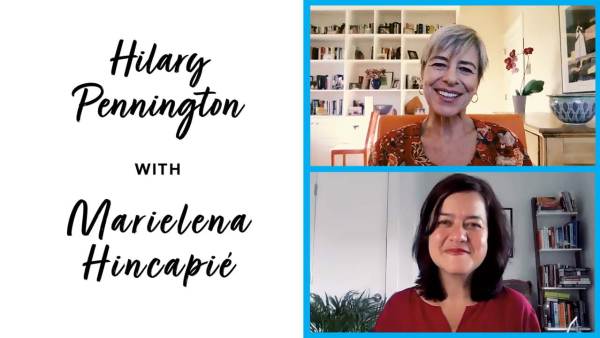
Immigrants are essential: Hilary Pennington with Marielena Hincapié
Immigration has been used as a weapon to divide the United States. The National Immigration Law Center aims to help the country understand that immigrants are not only important members of our communities and essential workers, but they are also valuable political constituencies needed to make American democracy work.
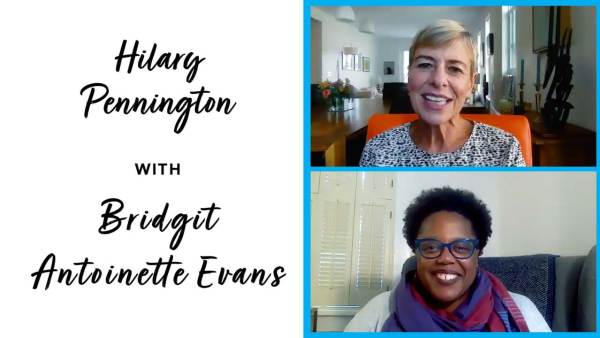
Social justice and pop culture: Hilary Pennington with Bridgit Antoinette Evans
Pop culture plays an important role in advancing social justice. Bridgit Evans of Pop Culture Collaborative produces cultural strategies that build on points of connection to ensure policy changes are not just symbolic. By finding commonalities through culture, she believes we can create a world where everyone feels they belong.
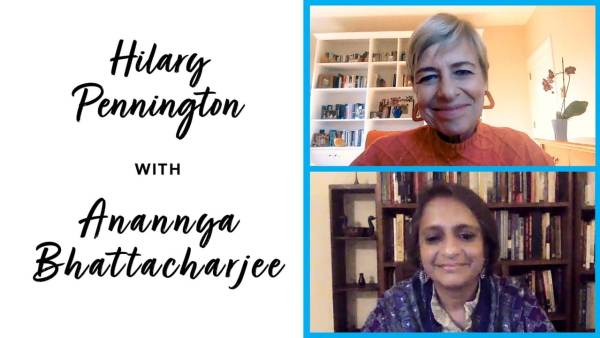
Global work needs to be local: Hilary Pennington with Anannya Bhattacharjee
While the labor movement has worked to improve the lives of garment factory workers globally, activist Anannya Bhattacharjee advocates that solutions need to start locally and come from the ground up to have a significant impact on workers’ lives.
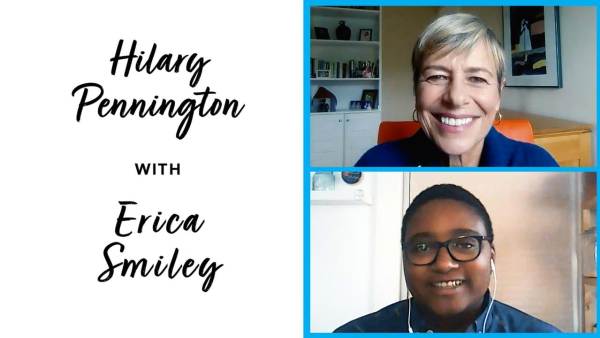
Essential workers are the economy: Hilary Pennington with Erica Smiley
The COVID-19 pandemic has dramatically changed the way we as a world work. As we face this inflection point, Erica Smiley, executive director of Jobs With Justice, believes people—especially essential workers—need to have the right to come together collectively to organize and negotiate their conditions to build a global economy that works for all.

The urgency of this social moment: Hilary Pennington with Eric Ward
We need to dismantle racism to make inclusive democracy truly possible. Eric Ward of Western States Center believes smaller movements can help support bigger waves of change. From creating cohorts of emerging leaders to encouraging small group interactions can help protect democracy and put an end to white supremacy.